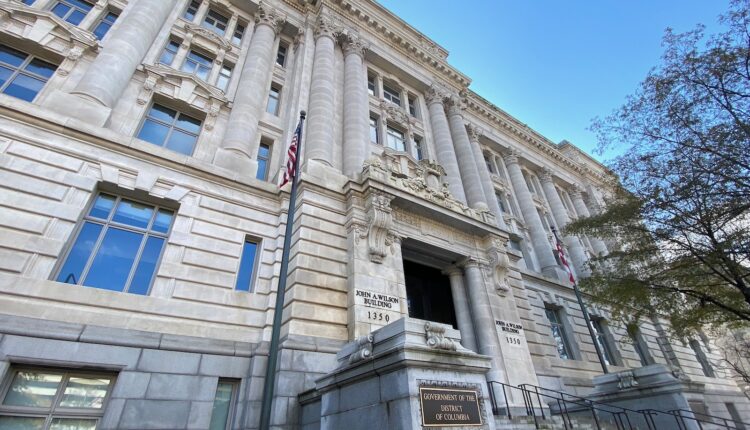Rachel White: Youth homelessness has lifelong consequences. Our elected officials must do more to end it.
DC youth need secure housing so they can spend their time, attention and energy on building their futures — not merely surviving. Youth experiencing homelessness are full of potential, dreams and aspirations. However, due to circumstances often beyond their control, they find themselves navigating life without stability and support.
As Mayor Muriel Bowser prepares to release the fiscal year 2026 budget, recent headlines citing a decline in youth homelessness based on the 2025 District of Columbia Point-in-Time Count (PIT) risk masking the broader reality. The PIT Count captures data from just one night in January and fails to reflect the year-round instability experienced by thousands of youth.

Nearly 10,000 young people — that’s 1 in 5 District youth — are experiencing housing instability, and more than 2,000 young people are experiencing literal homelessness. As we detail in a new report, “The State of Youth Homelessness,” the problem is deeply racialized, locally as well as nationally. Although Black youth comprise 38% of DC’s population of 18- to 24-year-olds, around 70% of young adults served by the District’s homelessness system are Black — a direct consequence of systemic racism and disinvestment. Those failings include the District’s continued flat funding of the youth homelessness continuum; insufficient affordable housing investments; and the enduring impacts of discriminatory practices like redlining and housing segregation, which have historically limited wealth-building opportunities for Black families and concentrated poverty in specific neighborhoods.
The experience of homelessness is harrowing for anyone, but it is especially damaging to young people. It robs them of their safety, their security and a stable environment at a critical time in their physical and social-emotional development. Homelessness limits their access to education, health care and opportunities for growth. It exacerbates their vulnerabilities and exposes them to the dangers of exploitation, addiction and chronic poverty.
Despite Mayor Bowser’s pledge to end youth chronic homelessness in DC by 2025, the number of young people experiencing homelessness and housing instability continues to grow. While the District faces budgetary pressures from federal threats and rising costs, cutting youth services is not a solution — it would be a major setback.
These programs are already operating on the margins — at best. If anything, even greater investment is needed. The Department of Human Services budgeted $22 million in FY 2025 for 13 community-based nonprofit organizations to provide housing, case management and other supportive services to District youth experiencing homelessness. This is roughly 0.1% of the total budget of the District. While current funding may appear to have increased over the last five years, it actually represents a decrease in real dollars when adjusted for inflation. In short, we have been asking these groups to do more, with less.
But the fact is that cutting this funding would hit the most vulnerable the hardest, denying all too many DC youth basic human necessities and thwarting their futures. Black youth ages 16 to 24 face a far higher unemployment rate than their white counterparts in the District — a nearly 5-to-1 Black-white ratio — contributing to one of the highest Black-white income gaps in the country.
The causes of youth homelessness are numerous and complex. Family conflict, abuse, poverty, and a lack of affordable housing all contribute to this problem. Mental health issues and substance abuse often coexist with homelessness, further complicating the path to stability. We have a responsibility to create conditions that allow all individuals, including young people, to lead dignified, secure lives.
Ending youth homelessness is possible, and doing so would demonstrate a commitment to principles of justice, compassion and social responsibility. Amid this period of uncertainty, as the federal government cuts funding for essential programs and attacks vulnerable populations, rolling back generations of progress in some areas, it is critical now more than ever that we stand up for our values. For these reasons and more, Mayor Bowser and the DC Council must create a plan and allocate sufficient resources for prevention services; emergency shelter and permanent housing; unobstructed pathways to education and employment; mentorship; and access to culturally competent mental health services.
Our youth experiencing homelessness are more than statistics — they are the faces of our future. We owe it to them and to society as a whole to end youth homelessness. We must work relentlessly and collectively to ensure that every young person has a safe and supportive environment in which to thrive.
Mayor Bowser and the council have the power to ensure more hopeful futures for our young people in this time of great uncertainty. The question isn’t whether we can afford to invest in our youth. It’s whether we can afford not to.
Rachel White is deputy director of youth advocacy at DC Action and heads the organization’s Youth Economic Justice Coalition.
About commentaries
The DC Line welcomes commentaries representing various viewpoints on local issues of concern, but the opinions expressed do not represent those of The DC Line. Submissions of up to 850 words may be sent to editor Chris Kain at chriskain@thedcline.org.



Comments are closed.